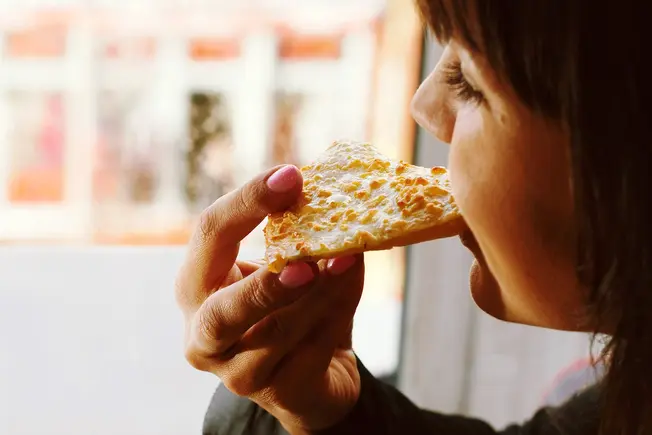Things You Can Do for Your Health Today

Eat Slowly
This gives your brain the chance to get the signal that you’re full, so you’re less likely to overeat. And if you take it slow, you’re more likely to think about what you’re eating and make sensible, healthy choices.

Socialize
It’s not about how many people you know or how often you see them. What matters is a real connection with others. It can make you happier, more productive, and less likely to have health problems. So call up a friend and go to dinner, or join a team or club to make some new ones.

Ditch the Juice, Eat the Fruit
If you like orange juice, have an orange instead. Even 100% pure juice loses nutrition when you process it, and it can put a lot of hidden sugar in your diet. On the other hand, actual fruits are good sources of vitamin C, potassium, fiber, and folic acid. And they’re low in fat, sodium, and calories.

Take Time Off
It’s a time when you can bond with family and friends, which is good for your mental and physical health. People who take more vacations live longer and are less likely to have heart disease and other health problems.

Watch the Fat
It’s not as clear-cut as it sounds. You definitely want to keep an eye on trans fats, which are added to some foods (like frozen pizza and baked goods) to keep them fresh. They’ve been linked to heart disease. But some fat -- from dairy, whole eggs, fish, avocado, or nuts, for example -- is good for you as part of a balanced diet. And high-fat dairy may even help you lose weight better than low fat. This may be because the fat satisfies your hunger better than other calories.

Manage Your Stress
We all have stress in our lives. It makes your muscles tense and your heart race. If this happens a lot -- during your daily commute, for example -- and you don’t handle it well, it can cause serious health problems, including high blood pressure, ulcers, and heart disease. So take time to breathe, do something that calms you, and try to accept what you cannot change -- like rush-hour traffic.

Cut Back on Sugar
Most of us get way more of it than we need. It’s not just the added calories and the lack of nutritional value: It also can make your blood sugar spike and then crash, and that leaves you tired, hungry, and irritable -- “hangry.”

Be Active
Exercise is a proven way to improve your health, your mental well-being, and even your libido. You don’t have to sign up for the New York Marathon -- just get your heart rate up for 30 minutes or so a few times a week. Gardening works, and so does a walk around the block. If you can’t make it a habit on your own, try to make it social: Join a local sports league or plan regular runs with a friend.

Keep Moving
If you work in an office, get up and walk around every hour or so, or try a standing desk for part of the day. You’ll burn more calories, improve your circulation, and stay more alert. It may even help prevent certain health issues, like diabetes and high blood pressure.

Eat Your Greens
Kale, spinach, collards, Romaine, arugula, bok choy, broccolini -- make sure you get plenty of these leafy green vegetables. They’re chock full of nutrients, low in calories, and have loads of fiber, which fills you up and satisfies your hunger.

Dance
It keeps your mind sharp because it’s a skill that involves body movement, and that’s especially good for your brain. It’s also social and can be lots of fun, which bring health benefits of their own. And you might not even notice that you’re exercising!

Have Sex
It’s linked to heart health, brain health, a long life, a strong relationship, and even happiness. Just keep it safe. Get tested for STDs and use condoms to protect yourself and your partner against diseases and unwanted pregnancy.

Get Your ZZZs
A lack of sleep can lead to diabetes, heart disease, obesity, and depression. If that’s not enough reason to get your ZZZs, it also causes car crashes and other accidents. Adults should get 7 to 9 hours each night.

Get Outside
The sunlight helps set your sleep clock and leads to more exercise. You’ll also get vitamin D, which many people don’t get enough of. It’s important for cell function, mental health, and heart health. But don’t stay in the sun too long, and wear sunscreen. Too much sun is linked to skin cancer.
